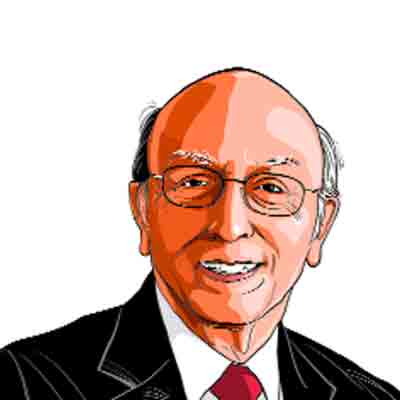Opinion Competitive,confident capitalism
Indian business faces many challenges,but morale is not low
Indian business faces many challenges,but morale is not low
Shekhar Guptas National Interest column is usually provocative. But Crony,crawly capitalism (IE,April 13,http://goo.gl/922Hb),incorporating several anecdotes,was sad and unfair. Hence,this response from one who has worked and watched Indian and international business for 50 years.
First,the task of business is to satisfy shareholders,be they public or private,in terms of profitability,dividends,market cap,etc. Business is not in the job of taking on governments and political leaders publicly. This is not the agenda of business in India or elsewhere. There have been a few exceptions over the past couple of years in India. Interestingly,they,too,are now conveying their views privately. Shareholders are uncomfortable with managements who go to war,however limited,with the powers-that-be. This needs to be understood. It is part of corporate culture. It is in their DNA.
Second,industry responds to policies and incentives. High interest rates make investments unworkable. This happened in 1996-97 and is happening now. Then,it took five years to get back to high growth. Now,the country does not have the luxury of five years. This is a GoI/ RBI issue. This is not a Sonia Gandhi/ Rahul Gandhi issue. The finance minister has already made a difference with several initiatives. India is heading back to 6 per cent GDP growth in 2013-14.
Third,industry is meant to compete,not operate in a cartel. Corporations are meant to out-compete each other so that the consumer benefits on price and quality. Industry institutions exist to bring business together and represent it to government based on anonymity and consensus. If corporations work in tandem,the competition commission will attack them. So individual companies have to fend for themselves,except where industry institutions can lend policy support. There is no other way.
Fourth,it is the role of the media to foster debate,which it does. Unfortunately,it sometimes gets carried away by competitive pressures to focus on trivialities. The media could be more effective if its work was data-based. Shekhar Guptas article itself is somewhat confused. He seems to have lost his way writing it.
Fifth,there is a rich and high-quality dialogue between industry and government in private. Most often,the content is not available to the media until final and firm decisions are taken. This is true for India and many other countries. What irks industry often is the lengthy delay in the decision-making process. Again,this is because of the need to reconcile diverse views. It is the nature of democracy.
Sixth,Rahul Gandhi made his first-ever speech to Indian industry at the CII on April 4. His father,Rajiv Gandhi,did likewise in March 1985,also to the CII. Rahul made several points: the central role of business,the criticality of collaboration and cooperation in taking India forward,the essentiality of inclusive growth,the aspirations of the poor and the need for business to play a role in all this. He took questions and,in response,covered broader issues. For a hard nosed corporate audience,applause and standing ovations come with difficulty. He got both,not artificially,not prompted by anyone. He is not the government. He is not the PM or the FM. The PMs session was fully dedicated to the economy.
Seventh,Central ministers and political leaders who consider business to be despicable in private may be some kind of a norm. The PM and several others consistently show respect for those who drive the economic engine of India,publicly and privately. Those who consider business despicable seek investment,projects,skills training,jobs,etc from business in their constituencies. The corporate sector follows a simple rule cooperate and collaborate to the extent possible. Is this despicable?
Eighth,the articles reference to a lack of communication with the PM,Sonia and Rahul is amazing. The economy is run by the government,particularly the FM. He is always available and interacts with business constantly. So does the PM. With no offence meant,why should industry need to communicate with the Gandhi family? There is an assumption in the article that is just not true.
Ninth,the issue of low morale. Thousands of Indian entrepreneurs exist and perform creatively. Let us say a hundred face hurdles of land,environment,capital and regulations. They are important,but numerous others are getting on with building an explosion of new businesses in India,which is the envy of the rest of the world. The challenges are many but morale is not low.
Finally,industrys role in society,which goes back to the first point,is an issue yet to be settled in India. Is the business of business to run itself efficiently and competitively? Or is it to supplement government and resolve social sector challenges? What can be said with surety is that Indian industry is globally competitive and confident,a far cry from 1991. And,this is a transformation to make Indians proud. In addition,Indian business is contributing to social development. More needs to be done and it will happen as part of a process.
For this,in a global economy deep in crisis,Indian business deserves respect. It has come a long,way and,by all indications,is ready to lead India back to a high growth path. Despicable is certainly not the right description.
The writer,co-chair of the Indo-US Strategic Dialogue,was with the CII


